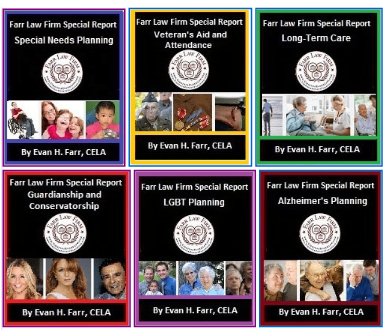Is it the End for Observation Status?
Published: Fri, 01/22/16
 |
Is it the End for Observation Status?If you cannot view the image below, please read the article on our blog. Q. Late last year, you answered a question about a woman who spent a week in the hospital and was seen by doctors and nurses, given every kind of test imaginable, operated on, transferred to another room for recovery, and then to a nursing home for two weeks of rehabilitation. Subsequently, she received a monstrous bill from the hospital and an even larger bill from the nursing home. Although Medicare covered the surgery and the one day in the hospital after that, it did not cover the first week in the hospital and did not cover the time
in the nursing facility for rehab. She was told that Medicare isn’t paying because the hospital had her in “observation status” rather than “inpatient status” during the week, and that Medicare doesn’t pay for “observation status” in the hospital.
I was alarmed when I read this, because a similar situation happened to my father, and now we owe the hospital more than $3,000 and the nursing home nearly $8,000 because of what the attending physician wrote on his chart. When I mention this to friends, the same thing has
happened to several of them or people they know. So, I am beginning to think this is common, and for most people, especially seniors on a fixed income, thousands of dollars in unexpected medical bills is not pocket change.
Recently, I read that political action committees and congressional advisors are fighting for an end to "observation status" altogether. Do you know anything about this and the status of these efforts? I hope it's true and that it will happen sooner, rather than later so more people don't find themselves in this unfortunate situation. A. Observation status is a designation that was meant to be exactly what it sounds like: a short period during which the hospital observes you to assess whether you need to be checked in for longer-term inpatient care or whether you can be quickly treated as an outpatient and sent home. Under current rules,
Medicare only will cover skilled nursing services after a beneficiary spends three days as a hospital inpatient, and time spent in observation is not counted toward this threshold.
According to the Centers for Medicare and Medicaid Services (CMS), observation status is a “well-defined set of specific, clinically appropriate
services” and in “the majority of cases” a patient is either admitted as an inpatient or discharged in less than 24 hours; “in only rare and exceptional cases” do they last more than 48 hours. Unfortunately in most instances, this definition isn't accurate. In fact, thousands of people each year have similar situations to yours and Shirley's in our
previous article. And, according to a 2013 report sent to the CMS by the Department of Health’s Office of Inspector General, on average beneficiaries are being held liable for SNF charges of more than $10,000.
Health Care Workers Are Not to Blame
Contrary to what many believe, health care workers are not at fault for decisions about whether a patient's hospital stay is considered observation status or inpatient care. Even though the doctors and nurses are the ones who fill out the charts, the decision is out of the attending health care worker’s control. Ultimately, whatever the nurse or doctor writes down on a patient's chart has to go
past a review committee, which usually uses “clinical-decision support” software to make these decisions.
Most doctors and nurses believe that the observation status/two-night rule has a negative impact on patient care and trust. A recent poll given by the Society of Hospital Medicine (a membership organization for hospitalists) found that only 17.4% of respondents felt that the rule was an improvement; 47% said it has had a negative impact on patient care. According to one of the respondents: “I assume CMS has done a lot of homework to get a good fix, but what they ended up with nobody likes. The hospitals don’t like it, and providers are
confused.”
Observation Status Isn't Working- What's Being Done
So as you can see, observation status as a way of classifying hospital patients is not working. Long-term care providers and senior advocates have protested the rise in observation stays, which can keep patients from qualifying for Medicare coverage of subsequent skilled nursing services. However, the issue has
proven difficult to resolve.
Some are hopeful that legislation will provide relief: Unfortunately, three bills in the House of Representatives (and one bill in the Senate) that took different approaches to resolving this growing problem for patients were
unsuccessful.
The Reason for the Observation Status Problem
The observation stay problem largely stems from the fact that auditors have aggressively challenged hospitals when they admit people as inpatients only for a day or two. The threat from auditors has led hospitals to use observation status liberally.
Rest assured that even if observation status is not eliminated altogether, there are other potential solutions on the table to make SNF care after hospitalization more accessible. One suggestion from the Medicare Payment Advisory Commission involves counting days in observation care toward the three-day threshold, where at least one of the days would have had to be spent as an inpatient to trigger SNF benefits. Political action committees and congressional advisors are continuing to debate Medicare's
hospital short-stay policies, and to lobby for change.
The NOTICE Act
Although observation status is still intact at this time, at least patients will be more informed than in the past. The NOTICE Act became a law in August 2015, requiring hospitals across the nation to tell Medicare patients when they receive observation care, but have not
been admitted to the hospital. The law requires hospitals to provide written notification to patients 24 hours after receiving observation care, explaining that they have not been admitted to the hospital, the reasons why, and the potential financial implications.
Hospitals will have to comply with the NOTICE Act beginning next August (one year after it was signed into law). Read more here.
Long-Term Care Planning in Virginia and other States
What if your father needs long-term nursing home care (which costs $10,000 – $14,000 a month in the Metro DC area)? To protect your family’s hard-earned assets, the best time to create your own long-term care strategy is NOW. Generally, the earlier someone plans for long-term care needs, the better. But
it is never too late to begin the process of Long-term Care Planning, also called Lifecare Planning and Medicaid Asset Protection Planning.
If you have a family member nearing the need for long-term care or already getting long-term care or if you have not done Long-Term Care Planning, please call us as soon as possible to make an appointment for a no-cost consultation:
Fairfax Long-Term Care Planning: 703-691-1888
Fredericksburg Long-Term Care Planning: 540-479-1435 Rockville Long-Term Care Planning: 301-519-8041 DC Long-Term Care Planning: 202-587-2797 --------- --------
Sign up for our FREE Special Reports and get the answers to your burning questions! Just click on a cover below! |
|
||||||||||||
|
This email was sent to
.
|












